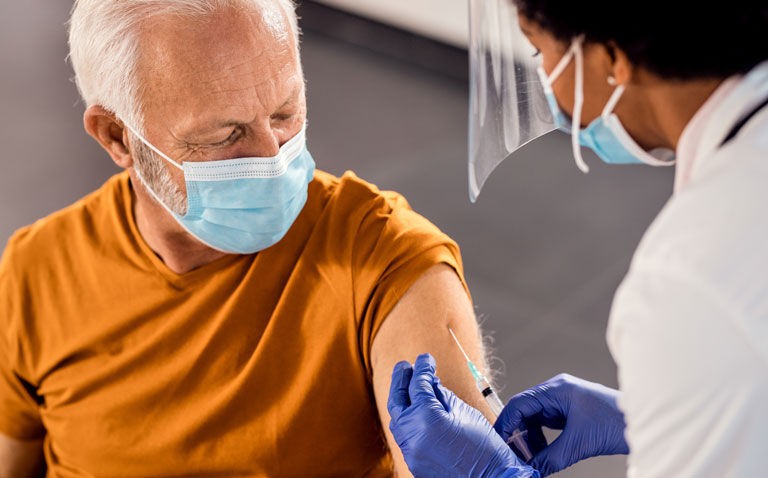COVID-19 vaccination significantly reduces the risk of both an acute myocardial infarction and stroke among those infected with the virus
COVID-19 vaccination provides individuals with a reduced risk of experiencing an acute myocardial infarction or ischaemic stroke after becoming infected with the virus according to the findings of a study by Korean researchers.
It has now become recognised that following an acute infection with COVID-19, beyond the first 30 days, individuals with COVID-19 have an increased risk of cardiovascular disease and which includes cerebrovascular disorders, dysrhythmias, ischaemic and non-ischaemic heart disease, pericarditis, myocarditis, heart failure and thromboembolic disease. While it is clear that a COVID-19 vaccination is safe and offers protection against severe COVID-19, hospitalisation and death against all current variants of concern, what is less clear is whether vaccination is able to reduce the post-infection cardiovascular sequelae.
As a result, for the present study, the Korean researchers undertook a retrospective cohort study and compared the incidence of acute myocardial infarction and ischaemic stroke in those with and without full COVID-19 vaccination. They linked data from the Korean nationwide COVID-19 registry and the National Health Insurance database and included all adults who were diagnosed with COVID-19 between July 2020 and December 2021.
However, the team excluded several patient groups including: individuals whose data showed that they had a cardiovascular event three months before a COVID-19 infection, cases of re-infection with the virus and patients who were vaccinated but hospitalised with the virus for longer than 30 days.
They set the primary outcome of interest as a composite of all hospitalisations for an acute myocardial infarction and ischaemic stroke and which had occurred 31 to 120 days after an individual’s COVID-19 diagnosis. They decided to exclude cardiovascular events within the first 30 days of infection because of the inherent difficulty of differentiating whether the event was related to infection of treatment.
COVID-19 vaccination and cardiovascular outcomes
A total of 231,037 patients were included in the analysis, of whom 62,727 were unvaccinated and with a median age of 42 years (51.5% female). The median age of the vaccinated group was higher (57 years) and had a greater incidence of co-morbidities including diabetes (11.8% vs 7.1%, vaccinated vs unvaccinated) and hypertension (22.1% vs 10.8%). Furthermore, a higher proportion of unvaccinated individuals had severe COVID-19 (3.1% vs 9.8%).
The median period of follow-up was 90 days in the unvaccinated and 84 days in the fully vaccinated group (which was defined as receipt of 2 doses of a vaccine).
The composite outcome occurred in 31 unvaccinated individuals and 74 of those who were fully vaccinated and after adjustment for differences in baseline characteristics, this difference was statistically significant (hazard ratio, HR = 0.42, 95% CI -.29 – 0.62, p < 0.001). This difference was also significant for the individual components of the composite.
The authors concluded that full COVID-19 vaccination was protective against the acute myocardial infarction and an ischaemic stroke that could arise after infection with the virus, compared with individuals who were unvaccinated.
Citation
Kim YE et al. Association Between Vaccination and Acute Myocardial Infarction and Ischemic Stroke After COVID-19 Infection JAMA 2022










